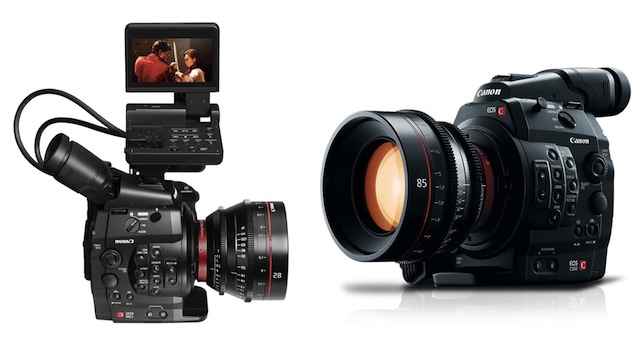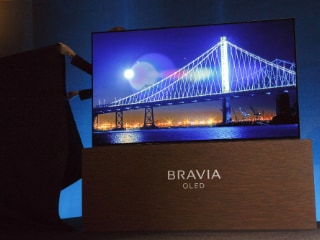- Home
- Cameras
- Cameras News
- Canon to increase manufacturing capacity in Japan as yen continues slide
Canon to increase manufacturing capacity in Japan as yen continues slide

Canon shifted camera and photocopier production abroad as the yen soared in the wake of the 2008 financial crisis making Japan-made goods expensive overseas. But is now set to reverse that move as it banks on the prime minister's economic stimulus plan, known as Abenomics, to push the yen below pre-crisis levels.
The company, which derives around 80 percent of revenue from overseas, will raise the proportion of products made in Japan to 50 percent within the next three years from 42 percent, Chief Executive Fujio Mitarai told Reuters in an interview on Thursday.
Mitarai said he was "looking forward" to seeing the yen extend its slide further this year after it fell more than 20 percent in 2013, and that he hoped that will help boost revenue and profit growth by more than 5 percent in 2014.
A weaker yen means it is cheaper to make goods in Japan, and boosts the value of overseas revenue once repatriated.
However, the dramatic shrinkage of the compact camera market in 2013 - estimated at 40.2 percent by researcher IDC - and an unforeseen weakening in high-end camera sales means Canon will likely miss its guidance for 2013 even after cutting its profit forecast at its last two earnings announcements.
Mitarai said Canon's revenue likely rose around 7 percent last year against a targeted 7.8 percent increase to 3.75 trillion yen, while operating profit was likely flat against guidance growth of 11.2 percent. The company reports its results for fiscal 2013 on January 29.
SLR SALES
The CEO said sales of digital single-lens reflex cameras likely came in under 8 million units in 2013 for the first annual decline since Canon introduced its first model in 2004, as the slowing pace of innovation meant fewer consumers felt the need to replace older models. He also attributed the drop to prolonged economic weakness in Europe and slowing growth in China.
"SLR sales fell last year due to poor economic conditions," Mitarai said. "But I think that they will rise stably from now on. I want to aim for close to 9 million units in 2014."
But industry insiders said Canon and its closest rival Nikon Corp were struggling to clear excess inventory built up as they overcompensated for damage done to factories in Thailand after flooding in 2011 - leading to prices of entry-level models being slashed by more than 50 percent to as little as $300.
Canon's shipments of interchangeable lens cameras accounted for 45.1 percent of global shipments in July-September, according to IDC, a 5 percent drop in share from the year prior and a 25.7 percent drop in unit sales.
Shares of Canon ended Thursday down 2 percent, compared with a 1.5 percent decline in the benchmark index. They fell 0.3 percent in 2013, against a 57 percent increase in the Nikkei.
© Thomson Reuters 2014
Catch the latest from the Consumer Electronics Show on Gadgets 360, at our CES 2026 hub.
Related Stories
- Samsung Galaxy Unpacked 2025
- ChatGPT
- Redmi Note 14 Pro+
- iPhone 16
- Apple Vision Pro
- Oneplus 12
- OnePlus Nord CE 3 Lite 5G
- iPhone 13
- Xiaomi 14 Pro
- Oppo Find N3
- Tecno Spark Go (2023)
- Realme V30
- Best Phones Under 25000
- Samsung Galaxy S24 Series
- Cryptocurrency
- iQoo 12
- Samsung Galaxy S24 Ultra
- Giottus
- Samsung Galaxy Z Flip 5
- Apple 'Scary Fast'
- Housefull 5
- GoPro Hero 12 Black Review
- Invincible Season 2
- JioGlass
- HD Ready TV
- Laptop Under 50000
- Smartwatch Under 10000
- Latest Mobile Phones
- Compare Phones
- Red Magic 11 Air
- Honor Magic 8 RSR Porsche Design
- Honor Magic 8 Pro Air
- Infinix Note Edge
- Lava Blaze Duo 3
- Tecno Spark Go 3
- iQOO Z11 Turbo
- OPPO A6c
- Lenovo Yoga Slim 7x (2025)
- Lenovo Yoga Slim 7a
- Lenovo Idea Tab Plus
- Realme Pad 3
- Moto Watch
- Garmin Quatix 8 Pro
- Haier H5E Series
- Acerpure Nitro Z Series 100-inch QLED TV
- Asus ROG Ally
- Nintendo Switch Lite
- Haier 1.6 Ton 5 Star Inverter Split AC (HSU19G-MZAID5BN-INV)
- Haier 1.6 Ton 5 Star Inverter Split AC (HSU19G-MZAIM5BN-INV)







![[Sponsored] Haier C90 OLED TV | Dolby Vision IQ, 144Hz OLED and Google TV in Action](https://www.gadgets360.com/static/mobile/images/spacer.png)









